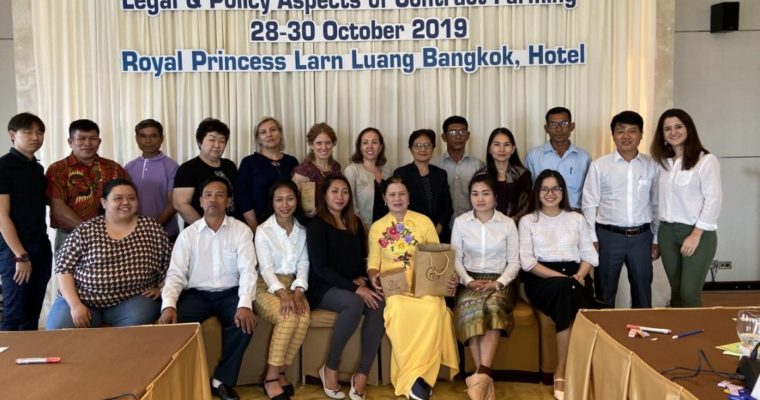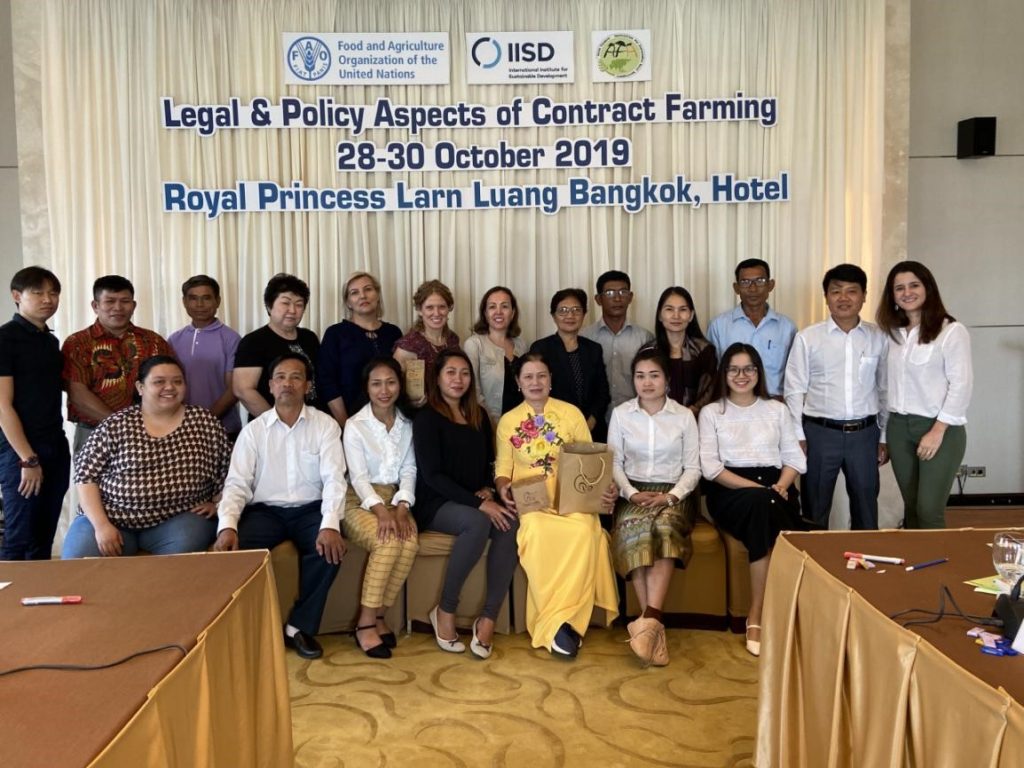Bangkok, Thailand – The International Institute for Sustainable Development (IISD) and the Asian Farmers’ Association for Sustainable Rural Development (AFA), with support from the Food and Agriculture Organization of the United Nations (FAO), jointly conducted a training workshop on the legal and policy aspects of contract farming on 28-30 October 2019 in Bangkok, Thailand. The main objective of the training is to increase the capacity of the participants in mitigating the risks and catalyzing the benefits of contract farming.
AFA members Farmer and Nature Network of Cambodia (FNN), Lao Farmer Network (LFN), Pambansang Kilusan ng mga Samahang Magsasaka (PAKISAMA), Viet Nam Farmers’ Union (VNFU), and National Union of the Water Users’ Associations of the Kyrgyz Republic (NUWUA) participated in the workshop. These members of AFA actively participate in contract farming agreements.
Contract farming is one of the most common agreements that family farmers in Asia does. It is a mechanism that is said to improve the lives of small scale farmers in Asia (ADB, 2014) but it is not a system without problems. Many farmers face injustice brought by the monopoly of investors, manipulation of quotas and corruption; many cases have been recorded wherein farmers are forced to comply with unfair contract farming agreements that they have. Even though the are a lot of disadvantages in entering contract farming agreements, it cannot be denied that if the farmers are able to enter fair contracts, then it is can support the production and marketing of the produce of family farmers. The workshop addressed the lack of support to family farmers in increasing their capacity in ensuring the benefits and building safeguards in their contracts to ensure that it is fair and that their rights are protected.
The training method used in the workshop was based on the needs identified by the participants with and practical and interactive delivery. The workshop was divided into eight main sessions, two of which are activities of practical applications of theories while the other six are as follows:
- Global and regional context of contract farming
- Basic concepts of contract farming
- Contract farming and the Law
- Contract negotiation skills and principles
- Legal and contractual innovations to support women in contract farming
- Private sector on contract farming
By the end of the workshop, the participants were able to identify the current issues they face within their ongoing contract farming agreements and have marked their plans on how to make it fairer to them and the members of their organizations and ensure that their future contracts are fair and according to the standards set by UNFAO. #





Comments are closed